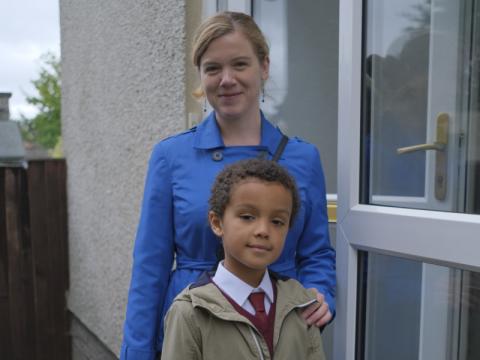There’s a range of financial support available to help pay for childcare costs. If you’re not sure what childcare suppor or funding you’re eligible for, and which you’d be best off claiming, an adviser at the Money Talk Team can help you work it out. You can also use the gov.uk childcare calculator to see if you’re eligible for help with childcare costs.
Funded early learning and childcare hours that are free to you
Available for: all 3-4 year olds and some 2 year olds.
All 3 and 4 year olds, and around a quarter of 2 year olds, can access 1140 hours of early learning and childcare, funded by the Scottish Government. That works out at about 30 hours a week if you use it during school term-time, or around 22 hours a week if you use it year round. Check out our page on funding and entitlement to ELC for more info.
You can use these free hours in addition to Tax-Free childcare, Childcare Vouchers, or reclaiming costs via Universal Credit or Tax Credits, as outlined below.
Tax-free childcare if you work
Available for: 0-11 year olds, or 0-16 year olds if your child is disabled.
If your child is aged 11 or under, or 16 or under if they’re disabled, you may be able to get Tax-Free Childcare to help cover costs. This depends on your work situation, your income and your partner’s income. However, you can't get Tax-Free Childcare at the same time as Childcare Vouchers or if you are claiming benefits such as Tax Credits or Universal Credit.
Tax-Free Childcare replaced the Childcare Vouchers scheme in October 2018, though you may still receive Childcare Vouchers to pay for childcare if you haven't changed employers.
You can find out more about Tax-Free Childcare on the gov.uk website.
If you’re not sure which funding support you're eligible for or if you’d be better off claiming, an adviser at the Money Talk Team can help you work it out.
Universal Credit for childcare
Available for: 0-16 year olds.
If you pay for childcare while you go to work and your child is aged 16 or under and you are on Universal Credit, you can reclaim up to 85% of your childcare costs for registered childcare. This includes nurseries, childminders, registered holiday clubs, after school clubs and breakfast clubs. You can find out more about the Universal Credit childcare element on the gov.uk website.
Tax Credits for childcare
Available for: 0-15 year olds, or 0-16 year olds if your child is disabled.
You can no longer make a new claim for Tax Credits. However, you may be able to claim Universal Credit instead.
If you pay for childcare while you go to work and you already get Tax Credits you can update your Tax Credit claim to get help with paying for registered childcare. Contact HM Revenue and Customs (HMRC) to update your Tax Credit claim – you don’t need a claim form
You can find out more about tax credits on the gov.uk website.
Help with childcare costs if you're looking for a job
If you’re looking for a job, there may be additional support available:
- If you're accessing local council employability services, speak to your key worker as they may be able to help with costs too.
- If you need to arrange childcare in order to attend an interview or you need to make an upfront payment to a childcare provider when starting work, you may be able to get help with the costs from the Flexible Support Fund. Speak to your Jobcentre Plus Work Coach or employability key worker for more information on the support that may be available to you.
Our page on help with looking for a job has more information.
Help with childcare costs if you're studying
Universal Credit for students
Depending on your situation, you may be eligible for Universal Credit if you’re a student. You can find out more about Universal Credit for students on the gov.uk website.
If you’re in higher education (studying for an HNC, HND, undergraduate or postgraduate degree at university)
If you’re studying at Higher Education level then you may be able to apply to your college or university's Childcare Fund. This Fund is provided by the Scottish Government, to help towards the cost of registered or formal childcare costs. This includes: childminders, after school clubs, day care, sitter services and providers of pre-school care and education. Each college or university is responsible for deciding which students should receive payments and how much each payment should be.
As part of this, you may be able to receive a non-income assessed Lone Parent Childcare Grant.
In addition to this, if you are widowed, separated, divorced or single with at least one dependent child you may be eligible for the Lone Parent Grant from the Student Awards Agency Scotland (SAAS), which you are able to apply for in your initial funding application.
You may also be eligible for support from your college or university's discretionary funds.
More information on all support available to students studying at HNC/HND or degree level or above can be found on the Student Awards Agency Scotland website.
If you’re in further education (studying for National Certificate modules, SVQs or National Qualifications at college)
If you’re studying at Further Education level at college or university then you may be able to get some additional funding to help pay towards childcare.
Each college has a Childcare Fund to help their students pay for registered childcare. Priority is given to certain groups, including lone parents, mature students, and part-time students, although other full-time students can apply too. The support available differs from college to college. To find out what is available you should speak to your college funding team.
You may also be able to get help towards childcare costs from your college's discretionary fund.
You can use the calculator on the Student Information Scotland website to get a rough idea of how much you'll need to live on when you’re at college or university. The calculator also includes a funding checker, which can tell you what funding you could potentially receive.
 Activities & Play
Activities & Play Behaviour
Behaviour Childcare
Childcare Development & Growing Up
Development & Growing Up Family, Friends & Relationships
Family, Friends & Relationships Feeding Your Baby
Feeding Your Baby Food & Eating
Food & Eating Health & Safety
Health & Safety Mental Health & Wellbeing
Mental Health & Wellbeing Money & Work
Money & Work Online Behaviour & Safety
Online Behaviour & Safety Pregnancy & First Days
Pregnancy & First Days School & Education
School & Education Sleep
Sleep










 Activities & Play
Activities & Play
 Money & Work
Money & Work